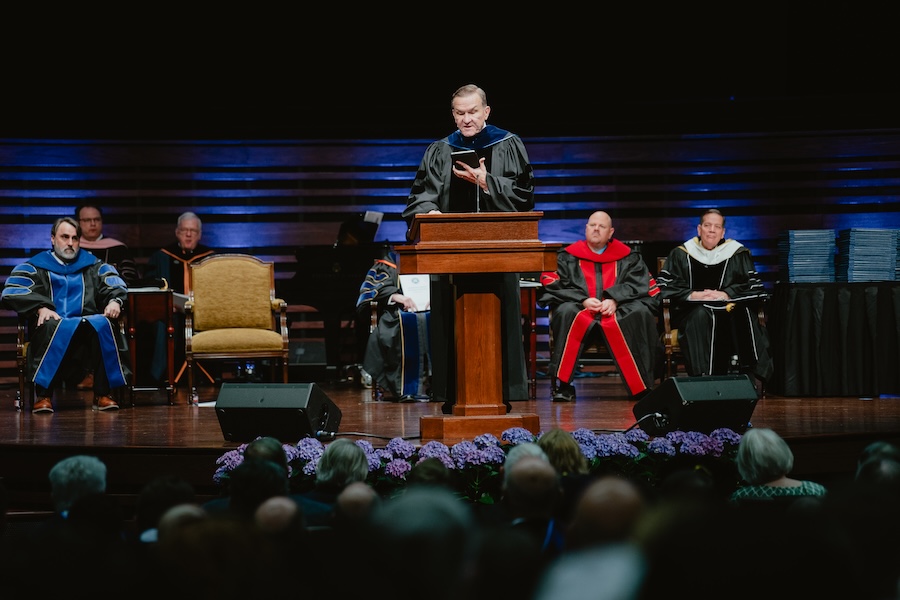Student Life Conference explores grace-filled ways of communicating
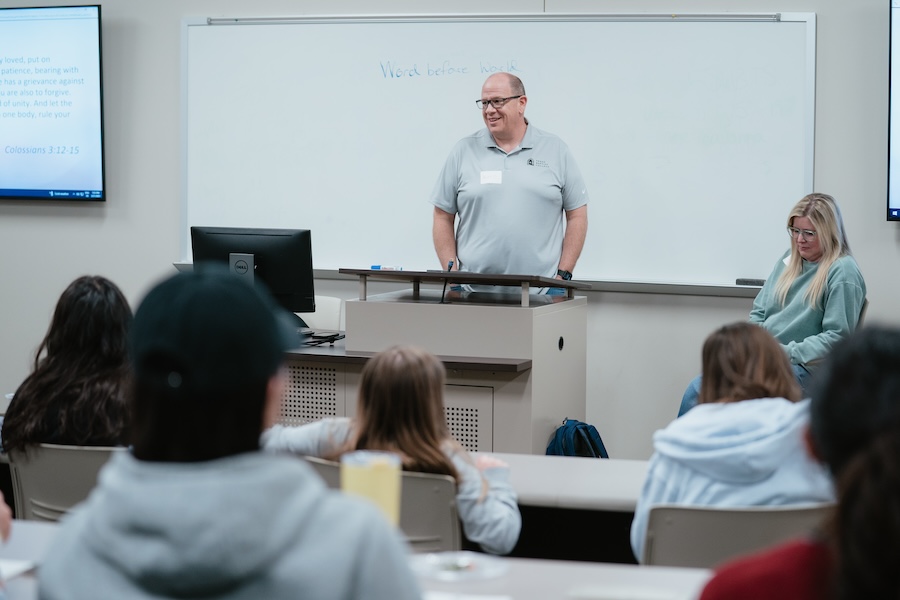
Faculty and other leaders of Southwestern Baptist Theological Seminary shared with students and visitors how they can have grace-filled conversations with each person they meet during the Living Wisely conference hosted by Student Life on Feb. 21.
“We love to help students and guests learn to grow with Christ in different ways,” Student Life Director Alex Miller shared, pointing out that Jesus said the world would recognize His disciples by how they love each other. “… We’re trying to help each other grow in love and caring for one another, and that’s why we’re doing a specific talk on communication.”
The conference included a session with keynote speaker Chandler Snyder, vice president for institutional relations, and four breakout sessions covering the topics of “Corrective and Redemptive Conversations,” “Communicating Cross-Culturally,” “Witnessing: Fewer Words, More Questions,” and “Communicating with People you Care About.” The evening ended with a time of Q&A with all the speakers.
“I think all of us know that, as we experience the world around us right now, that interaction and conversations and intentional conversations and hard conversations and cross-cultural conversations don’t always come easy,” Snyder said, pointing out that face-to-face interactions are often avoided as people instead converse digitally.
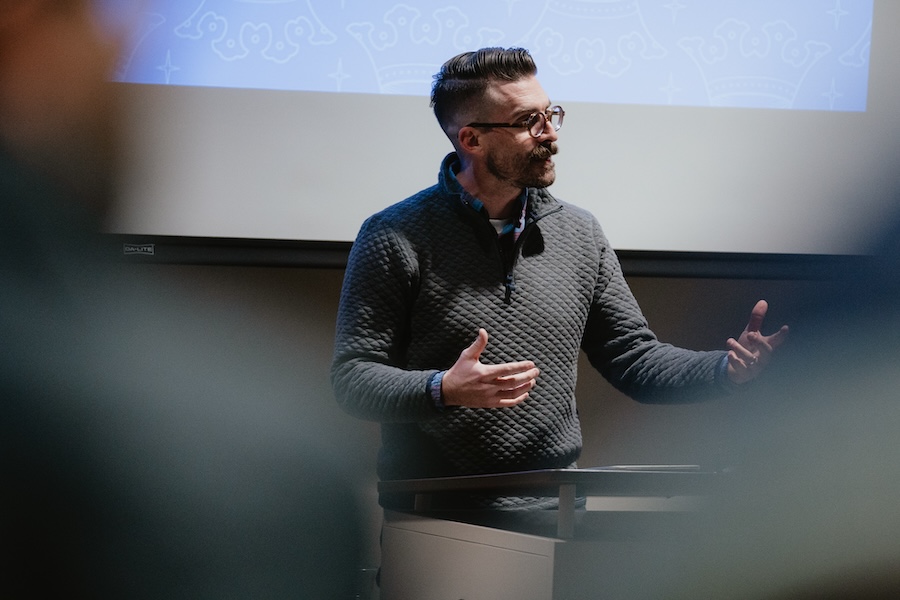
Chandler Snyder served as the keynote speaker for the Living Wisely Conference.
Snyder said God created people with a need for relationship, while isolation is a tool of the enemy. And for every relationship, conversation is required. And each intentional conversation has a purpose for the other, the outsider observing the conversation, and the one initiating the conversation.
“You’ve got to remember that they are an image-bearer of an eternal God,” Snyder began in how to approach an individual. “… Not something to be consumed, not a piece on the board to be moved or shoved around, not as someone to be manipulated for a particular outcome, or an obstacle in the way of getting what you want. They are an image bearer of a loving God.”
While a one-on-one conversation may be private, Snyder said the outside party should also always be considered as they observe the conversation or hear about it later.
“You reflect Christ to the outsider, and we can’t be ignorant of that fact,” Snyder said. “It’ll be an opportunity to either shine the light about Christ to the outsider, as He is in our lives and informing our interactions, or it’ll be an opportunity to dim the hope of Christ in that outsider’s life.”
Snyder said these intentional conversations, meant to produce change for the listener’s benefit and God’s glory, also has a purpose for the individual themselves, as they rely on the Holy Spirit and strive to bring God glory through the conversation as they experience and extend forgiveness.
Conference attendees were able to select a breakout session for more details about different areas of conversation.
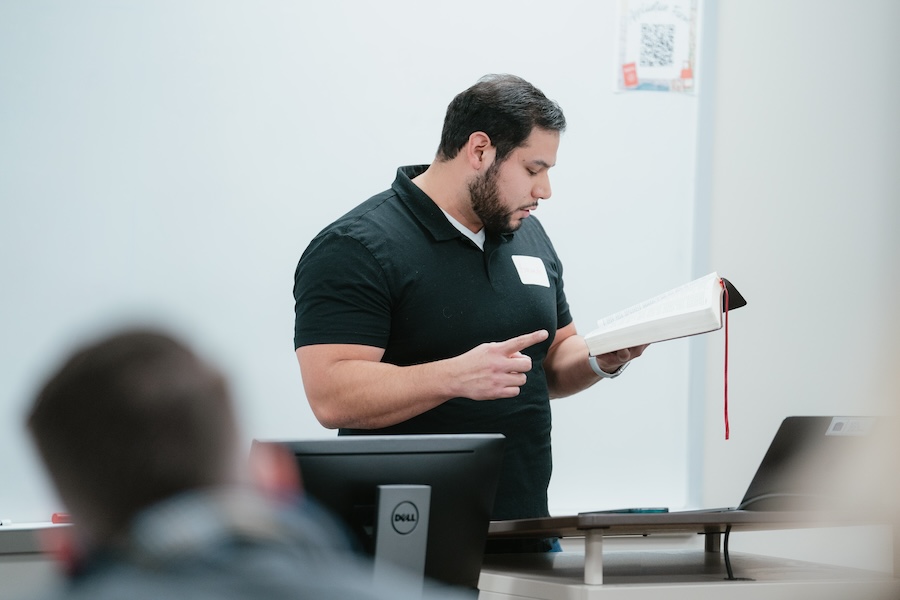
Armando Hernandez led a session on corrective and redemptive conversations.
Armando Hernandez, director of admissions, used his session to discuss how to hold corrective conversations with individuals that need to be guided back to a correct walk with the Lord.
“I want to equip you with the practical and biblical framework to having intentional, … corrective, and redemptive conversations with a loved one that would help you navigate these moments with wisdom, grace, and confidence, for the sake of restoring them to a right relationship with God and the community of faith,” Hernandez said.
Hernandez read from 2 Samuel 12 as he used the story of Nathan confronting David after his sin with Bathsheba, rebuking him and announcing the punishment the Lord had in store for him. Similar to Nathan, Hernandez said believers may have scenarios where they need to rebuke and exhort a fellow believer in order to warn or direct them towards repentance.
Professor of missions Kevin Rodgers and his wife Suzie led a session on communicating across cultures, pointing out that does not just mean ethnicity, but also includes different ages, genders, and other demographics.
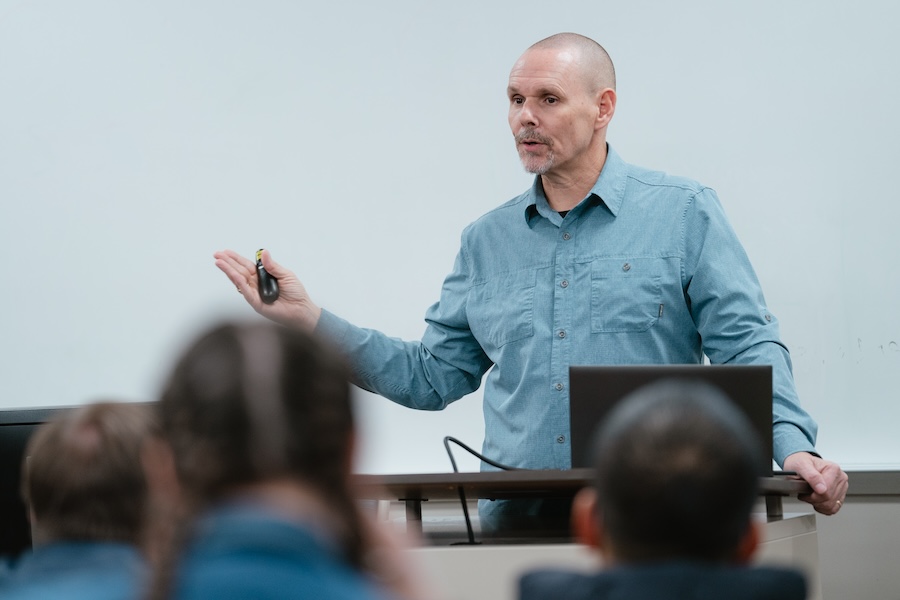
Kevin and Suzie Rodgers gave information on communicating across cultures.
Rodgers said five keys to being able to hold conversations and share the Gospel with people cross-culturally include being a servant, a continual learner, and someone who speaks less and listens more, appreciates the diversity and differences, and reflects the grace and love of God at all times.
“Sometimes we’re so intent on getting to the Gospel we miss things in the process, and we’re not effective Gospel sharers because of that,” Rodgers said, explaining that when training missionaries, he would advise them to observe the area, the people, and mannerism first before interacting with them with the Gospel.
Dean Sieberhagen, professor of missions and interim dean of the Roy J. Fish School of Evangelism and Missions, specifically addressed how to share the Gospel by asking introductory, transitional, probing, and then Gospel questions, even when their answers might be aggressive and opposed to Christianity.
“They are lost people,” Sieberhagen said to remember when speaking especially with those of other religions, giving Col 4:6 for a reference for how to respond graciously. “You want to win their heart. … And they might give you food that’s not very tasty, their words. Give them seasoned with salt words. Give them back, even if what they say is not tasty, give them back tasty.”
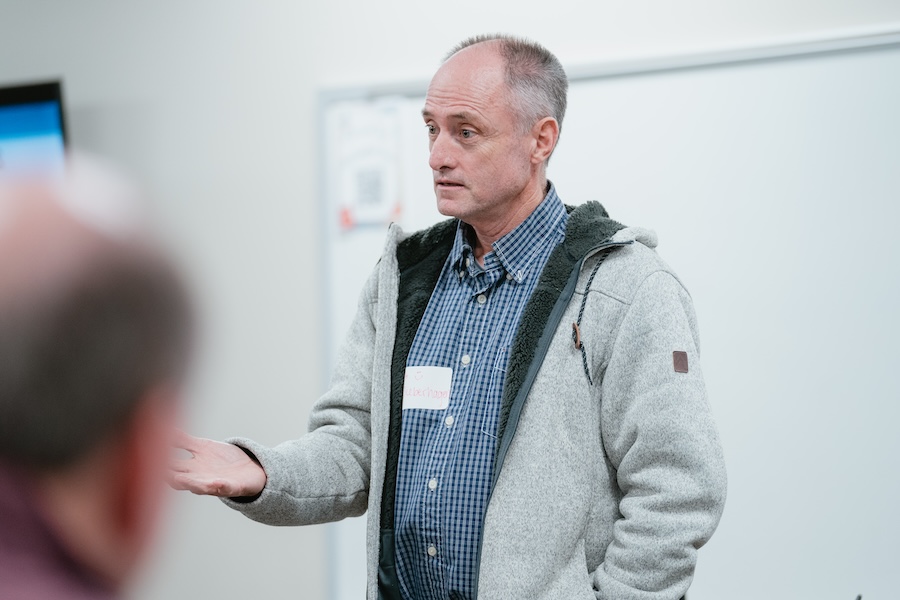
Dean Sieberhagen gave conference attendees examples of questions that can be used to lead to Gospel conversations.
Alex Miller and his wife Kim specifically spoke of communicating with loved ones, pointing out that Jesus was a perfect example to study how He interacted with others with love, undivided attention, and encouragement, speaking to the multitudes while specifically investing in His few disciples.
Kim said believers must avoid trying to be efficient with the people they communicate with, and instead be willing to spend time with them and listen, showing compassion for them. At the same time, Kim said you cannot make yourself available to everyone either.
The Millers also examined Col. 3:12-15, which includes attributes that a follower of Christ must put on. Alex said that is where believers should start when examining how they communicate with loved ones.
The evening ended with a Q&A with the session leaders, including topics such as favorite scriptures about wise conversations, cross-cultural conversations, and conversations as a leader or follower of others.
“We get a chance to learn from these folks, to grow and be encouraged, challenged, but also be sharpened, so that we can be better equipped, but then turn around and better equip the people that we’re dealing with,” Miller summarized the one-night conference. “So my hope for you is that you will walk away from this deeply encouraged, but also ready to engage people in a healthier way.”

